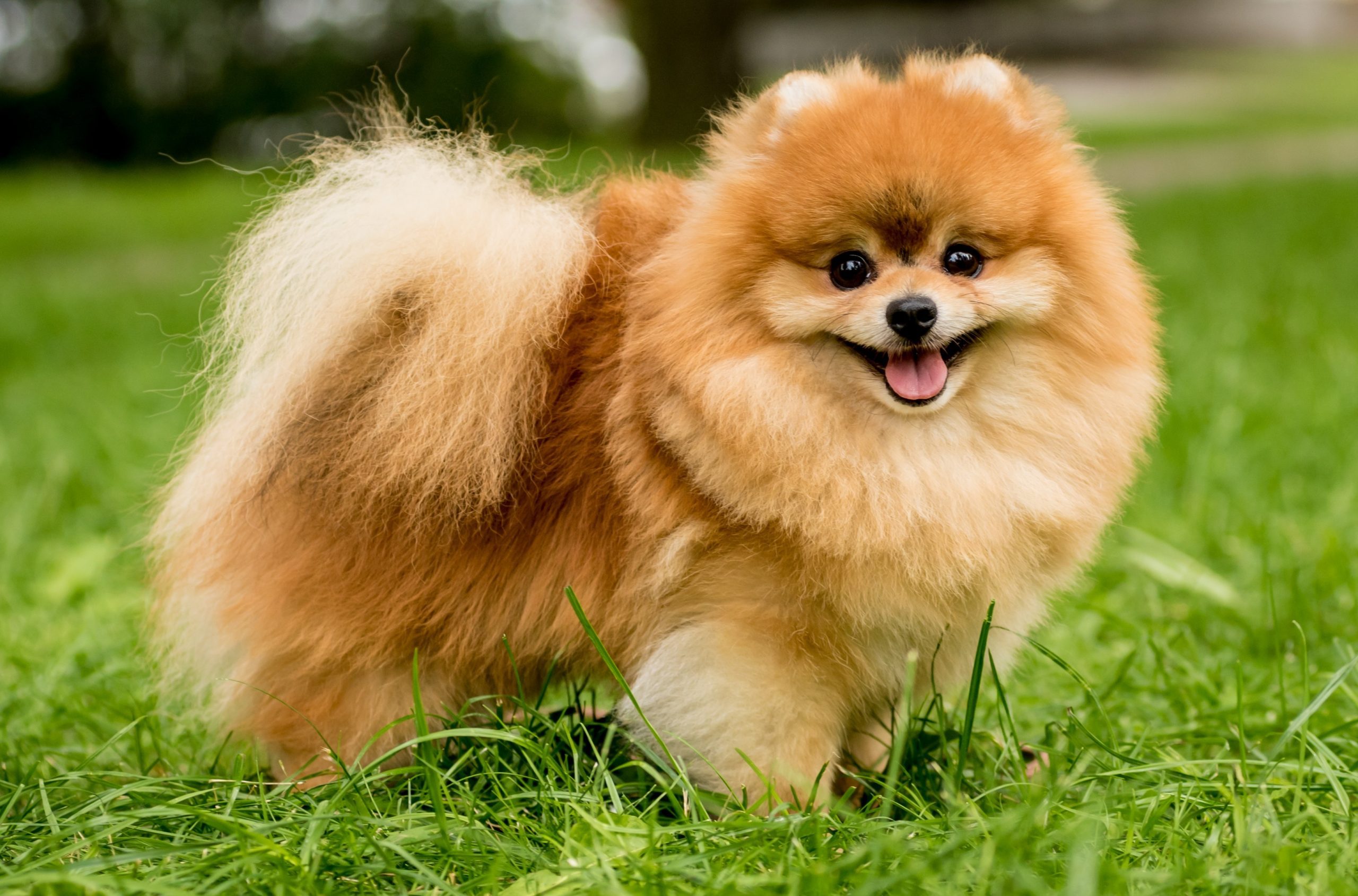The Pomeranian dog breed originated in the European region of Pomerania. They are known for their compact stature, fluffy double coat, alert appearance, and energetic demeanor. They are popular as companion dogs because they are energetic, intelligent, and frequently exhibit a confident and curious personality.
Pomeranians come in a variety of colors and patterns, and they require regular grooming to keep their luscious coat in good condition. While they make excellent companions, their small stature and delicate frame necessitate careful handling and supervision, particularly when around children and larger animals.
Despite their small stature, Pomeranians have a wonderful personality that adds to their allure. They are often described as courageous, vivacious, and spunky. These small dogs are naturally inquisitive about their surroundings. They are always inquisitive and want to interact with their surroundings. Their alert expression, bright eyes, and perky ears make them appear adorable and inquisitive. We should also mention how adorable Pomeranian puppies are.
Introduction
A Quick Overview of the Pomeranian:
Pomeranians, also known as "Poms," are small, fluffy dogs with large personalities and soft coats. Despite their small size, they have a vibrant personality and a history that includes royal connections. Their popularity is boosted by the fact that they are cute, friendly, and can live in a variety of environments
Popularity Reasons:
They are becoming increasingly popular for a variety of reasons, including:
Size: Due to their small size, they are ideal for people who live in apartments or have small homes.
They are known to be active and playful, making them ideal pets for both families and single people.
Their fluffy double coats, fox-like faces, and feathered tails make them irresistible.
Adaptability: They can adjust to different ways of life and are equally content in busy city apartments as they are in quieter suburban homes.
History
Breeding History:
Pomeranians are descendants of the Pomeranian region, which is now split between Germany and Poland. They are related to larger dogs that worked and pulled sleds. They were bred to be smaller over time, but they retained their lively personalities.
Differences Between Pomeranian Breeds:
Pomeranians are their own breed; no other "breeds" of Pomeranians exist. However, genetic differences in coat color, pattern, and size may exist.
Characteristics
Physical Description:
Their face is fox-like, and their plumed tail curves over their back. They have a variety of colored and patterned coats.
Personality traits:
Pomeranians are intelligent and curious dogs. They are usually confident, smart, and eager to get close to their owners.
Temperament:
These dogs can be energetic and lively, but they can also be loving and devoted. People recognize them for their closeness to their families.
Size:
They are typically 6 to 7 inches (15 to 18 cm) tall at the shoulder.
Weight:
They are one of the tiniest dog breeds, weighing between 3 and 7 pounds (1.4 and 3.2 kg).
Lifespan:
Pomeranians typically live between 12 and 16 years if properly cared for.
Socialization and Education
Early education and socialization are critical:
Pomeranians must be trained and socialized from a young age in order to mature into well-mannered and adaptable dogs.
Training Recommendations:
They respond well to positive reinforcement techniques such as treats and praise. They learn best when they are treated gently and patiently.
Common behavioral issues and how to deal with them:
Pomeranians may bark excessively and have difficulty being alone if they are not properly trained and socialized. People require regular training and mental stimulation to deal with these issues.
Maintenance and upkeep
Common diseases and symptoms:
Pomeranians frequently have dental, knee, and breathing issues. It is critical to visit the veterinarian on a regular basis.
Food requirements:
It is critical that they consume a healthy, balanced diet that meets all of their nutritional requirements. A veterinarian can assist you in determining the best diet for your pet.
Exercise Prerequisites:
Pomeranians require regular walks and playtime to stay healthy and prevent obesity.
Hygiene and grooming:
To keep their thick double coat from becoming matted, they must be brushed frequently. Baths, nail trims, and dental care are all beneficial to their overall health.
Reproduction and breeding:
A responsible approach to dog breeding is to prioritize the health of both the parents and the puppies. Ethical breeders are more concerned with the dogs than with making money.
Animals can be purchased and adopted from the following locations:
Reputable breeders who do good when they breed are recommended. When dogs in need are adopted from shelters and rescue organizations, they are placed in loving homes.
Media Coverage of the Pomeranian
Pomeranian celebrity:
Celebrities and social media influencers have helped them gain popularity as cute and stylish pets.
Pomeranian in film and television:
They have appeared in films and television shows, usually as cute and lovable characters.
Representation in the Media:
They are frequently portrayed as cute, smart, and funny characters, which increases their popularity as pets.
Conclusion
To summarize, Pomeranians are popular because of their cute appearance, lively personality, and ability to bond with their owners. Despite their small size, they have a strong presence and bring joy to many homes. These cute and friendly dogs can make excellent companions with the proper care, training, and exposure to other people and animals.
